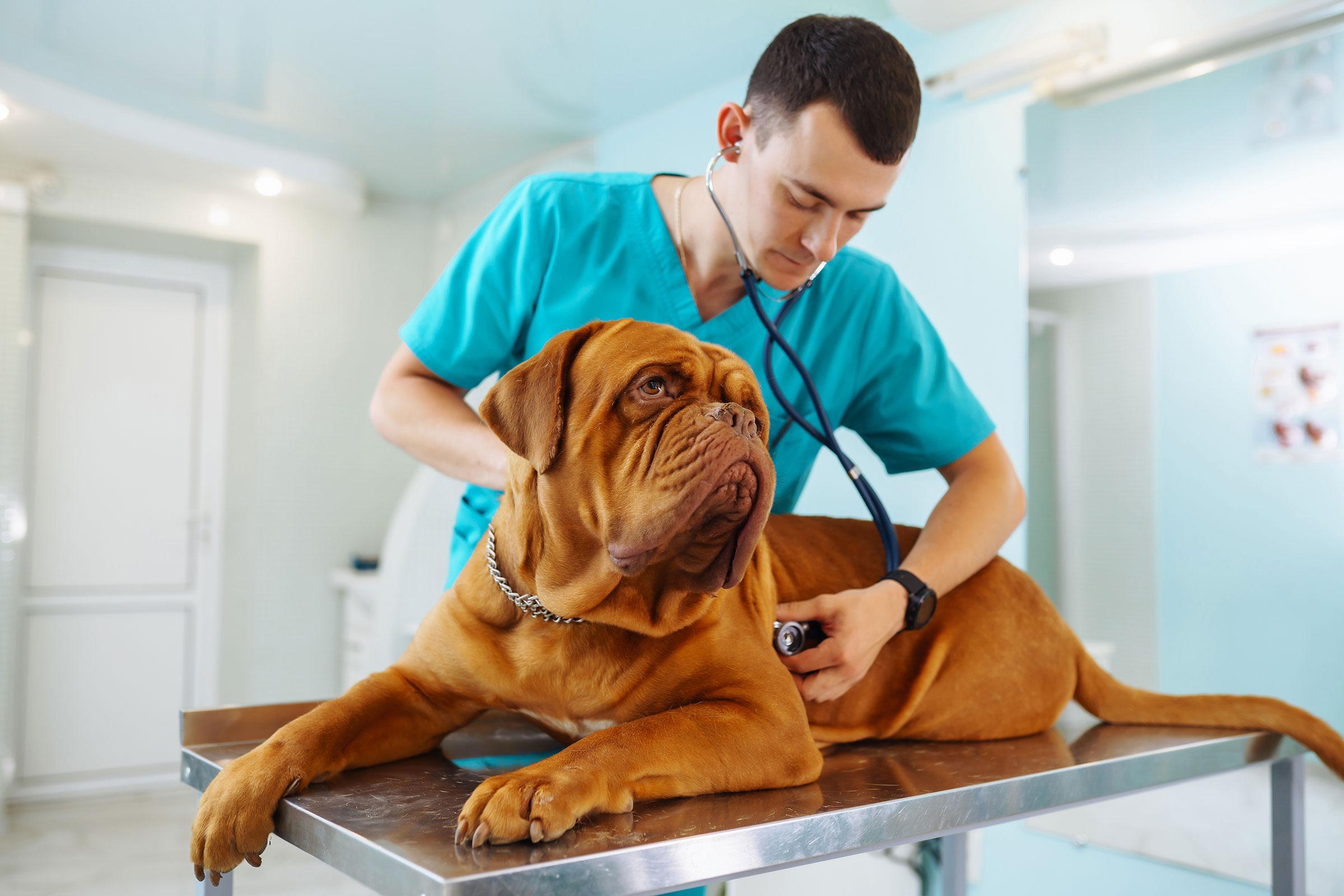Veterinary Oncology: A Growing Field for Pet Cancer Care

Cancer is a leading cause of death in pets today. While advances in veterinary medicine have improved lifespans and quality of life for many companion animals, cancer rates continue rising each year. This has led to the growing specialization of veterinary oncology - a field dedicated solely to the diagnosis, treatment and management of pet cancers. Through surgical intervention, chemotherapy, radiation therapy and immunotherapy, veterinary oncologists are helping cats and dogs battle cancer and live longer, healthier lives.
What is Veterinary Oncology?
Veterinary oncology is the specialty branch of veterinary medicine that focuses on the diagnosis and treatment of cancers in pets. Veterinary oncologists undergo extensive post-graduate training in areas such as surgical oncology, chemotherapy protocols, radiation oncology and clinical trial research. They work closely with veterinary pathologists, internal medicine specialists and other veterinary professionals to provide comprehensive cancer care for cats, dogs and other companion animals.
The goal of Veterinary Oncology is to diagnose cancers as early as possible, determine accurate prognoses, develop treatment plans and help improve both the duration and quality of life for pets undergoing cancer therapy. While cure may not always be possible, modern veterinary oncology aims to effectively manage cancer as a chronic disease in pets.
Diagnostic Techniques in Veterinary Oncology
Accurate cancer diagnosis starts with a thorough physical exam and medical history review by the veterinary oncologist. Further diagnostic testing often includes:
- Fine Needle Aspirates/Biopsies: Using needles to extract small tissue samples from masses for microscopic examination.
- Radiography/X-rays: Used to visualize tumors in bones and certain soft tissues.
- Ultrasound: A non-invasive imaging tool that uses sound waves to detect tumors.
- CT/MRI Scans: Advanced cross-sectional imaging modalities showing detailed tumor anatomy and spread.
- Blood/Urine Tests: Screen for cancer spread or Related abnormalities in lab values.
- Tumor Marker Tests: Help determine cancer type/prognosis based on protein/molecular signatures.
An official cancer diagnosis is made after a pathologist examines biopsy/surgical specimen samples under a microscope and identifies cancerous cellular changes. This confirms both the cancer type and stage or extent of disease, crucial information for determining the treatment approach.
Surgical Oncology Techniques
Surgery is a mainstay of cancer treatment in veterinary medicine when possible and beneficial. The goals of surgical oncology include:
- Removal of the Primary Tumor: Taking out visible signs of cancer through procedures such as lumpectomy, mastectomy or tumor/mass removal.
- Staging/Biopsies: Using surgery to determine cancer extent and collect tissue for pathology.
- Debulking or Cytoreduction: Reducing overall tumor burden but not aiming for full removal.
- Palliative Surgery: Used to relieve cancer symptoms like pain, bleeding or obstruction.
Veterinary surgical oncologists receive advanced training in specialized techniques such as:
- Minimal incision/keyhole surgeries
- Limb-sparing resections
- Reconstructive procedures
- Oncologic/tumor-specific surgeries
- Surgeries involving major organs or multiple sites
While every effort is made for clean surgical margins and tumor removal, sometimes all visible cancer cannot be safely resected due to critical anatomic areas involved or metastatic disease. However, even partial tumor removal may still provide therapeutic benefit.
Adjuvant Cancer Therapies
For cases where surgery alone is not curative or all cancer cannot be surgically removed, veterinary oncologists typically recommend additional treatments. Common adjuvant therapies include:
Chemotherapy
Chemotherapy uses anticancer drugs to treat cancer systemicly. Various chemotherapy protocols have been developed specifically for different pet cancer types. Drugs are typically given orally or by injection on a schedule of treatments over weeks. Side effects can include vomiting, diarrhea, fatigue and hair loss but are often manageable. Chemotherapy is indicated for cancers that have metastasized or commonly spread beyond the original site.
Radiation Therapy
Like human patients, pets with certain tumor types benefit greatly from external beam radiation treatments. Radiation oncology facilities use advanced linear accelerators to precisely deliver high dose radiation beams to kill cancer cells while minimizing damage to normal tissues. Radiation is commonly used as adjuvant therapy after surgery or for unresectable tumors.
Immunotherapy
Newer immunotherapies aim to stimulate a pet’s own immune system to recognize and attack cancer cells. Options include treatments with interleukin, vaccines, monoclonal antibodies and checkpoint inhibitors. While most effective for certain cancers, immunotherapy provides a promising new treatment approach with sometimes dramatic results. Clinical trials continue advancing this field.
Integrative Therapies
Some veterinary oncology practices also incorporate integrative and complementary therapies when researching their potential benefits. Options may include acupuncture, herbs, nutrition/diet changes, hypnotherapy, chiropractic and others - usually recommended as supplemental rather than replacement of core therapies. However, integrative therapies require careful consideration and discussion with your oncologist based on individual patient and cancer factors.
Monitoring and Managing Cancer
After initial cancer treatment, lifelong monitoring and management become priority. Follow-up exams and diagnostic testing help detect potential recurrence or new primary tumors. Behavior modifications and at-home care also play an important supportive role. The veterinary oncology team works closely with pet owners to maximize quality of life during and beyond cancer treatment through open communication and a personalized care approach.
While cancer remains a challenge, the emerging field of veterinary oncology offers growing hope through innovative new therapies and research. By catching tumors early and utilizing multimodal treatment protocols, pets stand a much better chance of living well with and beyond their cancer diagnosis. With the help of skilled veterinary oncologists, many animals now survive their cancers for months or even years - a true milestone for veterinary medicine and our beloved furry family members affected by this disease.
Get More Insights on Veterinary Oncology
- Art
- Causes
- Crafts
- Dance
- Drinks
- Film
- Fitness
- Food
- Jocuri
- Gardening
- Health
- Home
- Literature
- Music
- Networking
- Alte
- Party
- Religion
- Shopping
- Sports
- Theater
- Wellness
- IT, Cloud, Software and Technology


